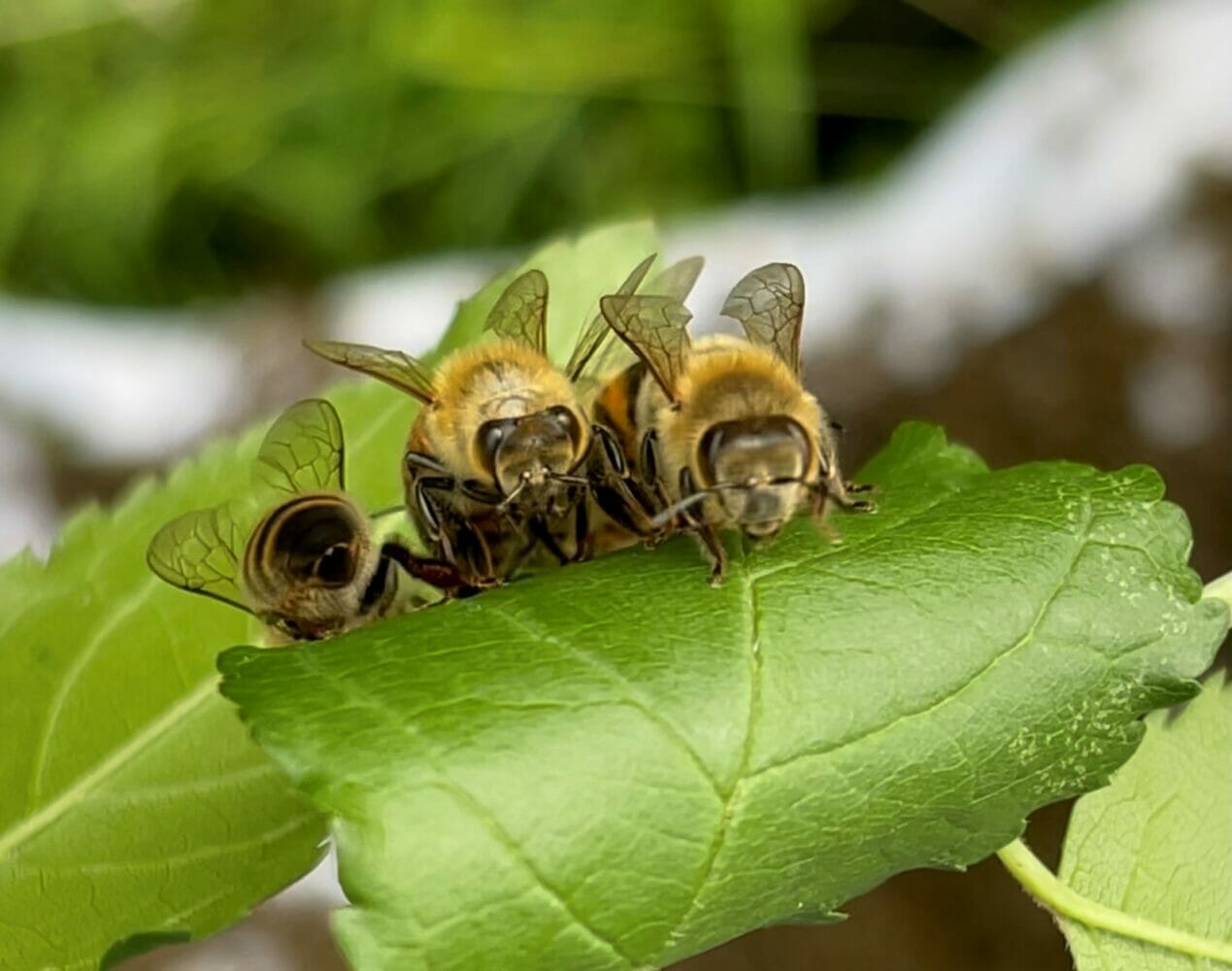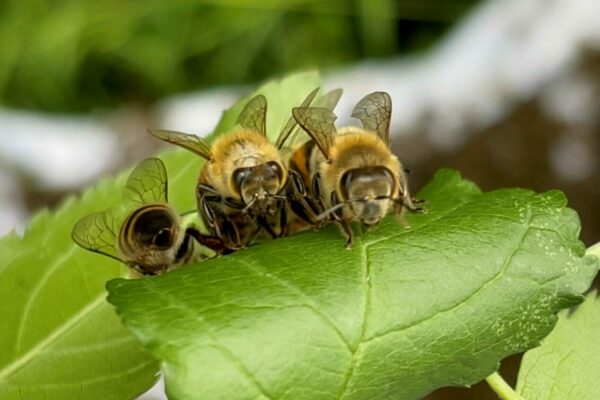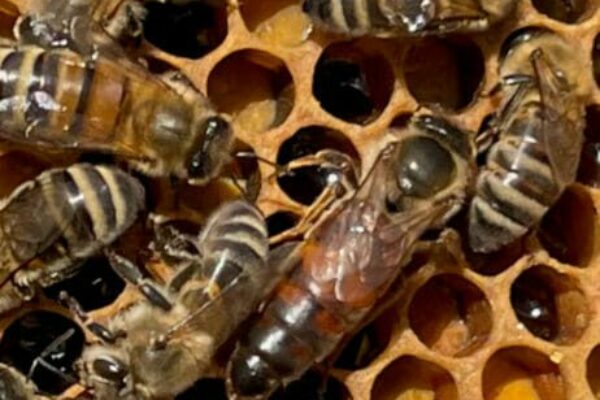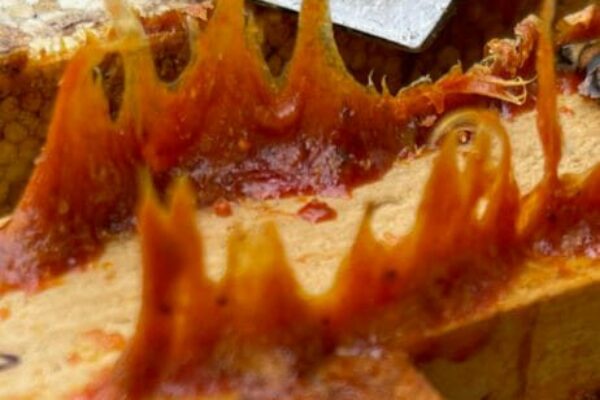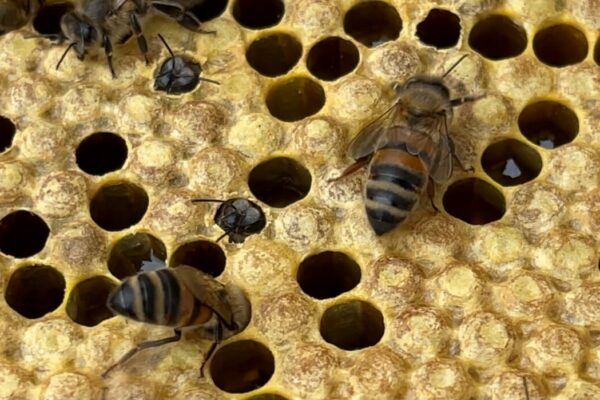Those of you that know me know, I became a Beekeeper in 2022. You have given feedback that you are keen to learn a little too. This time of year the bees have their stores of food for winter and have done all the preparation to their homes to make them waterproof.
Propolis is a sticky resinous mixture that bees use to seal unwanted open spaces in hive parts. It is yellow/brown and smells incredible. It is used as a defence from the outside. This could be from external invaders, such as; mice, wasps, or simply from the wind and rain.
How do bees collect it?
Bees do not actually collect propolis – they make it. They collect sap from plants or trees such as poplars and conifers or from wounds in the plant itself. This sap is piled into their little pollen sacks on their legs and taken back to their colony. Saliva and wax are mixed in with the sap and the result is propolis.
What do they use it for?
Bees coat the inside walls of the hive and the comb with a thin layer of propolis – this gives strength to the structure. Larger amounts are used to fill small cracks in the hive or between hive parts (the main reason beekeepers use a hive tool!).
Can it be used for anything else?
Propolis has been used for thousands of years due to its antimicrobial, antiviral and antioxidant properties which have numerous beneficial health effects on humans. The Egyptians, Romans, Incas, and Ancient Greeks all used propolis in different ways; including embalming, reducing fever, as an antiseptic, as a wound healer and many more. In later years, the sticky substance was used as a violin varnish and even as a treatment for tuberculosis by the Soviets during World War II.
Nowadays, propolis is still a popular self-remedy which can be found in health food shops (or in your beehive!) in the form of capsules, creams, lozenges or powders. It is used for common colds and other flu-like infections, as well as on skin for wound healing, burns and acne. Propolis mouthwashes and toothpastes are also popular because they help to combat cavities, mouth ulcers, and gingivitis.
Despite all these benefits, propolis is also highly allergenic which means some people are susceptible to an unpleasant rash. Fortunately, you will not come into contact with it at the Farm.

